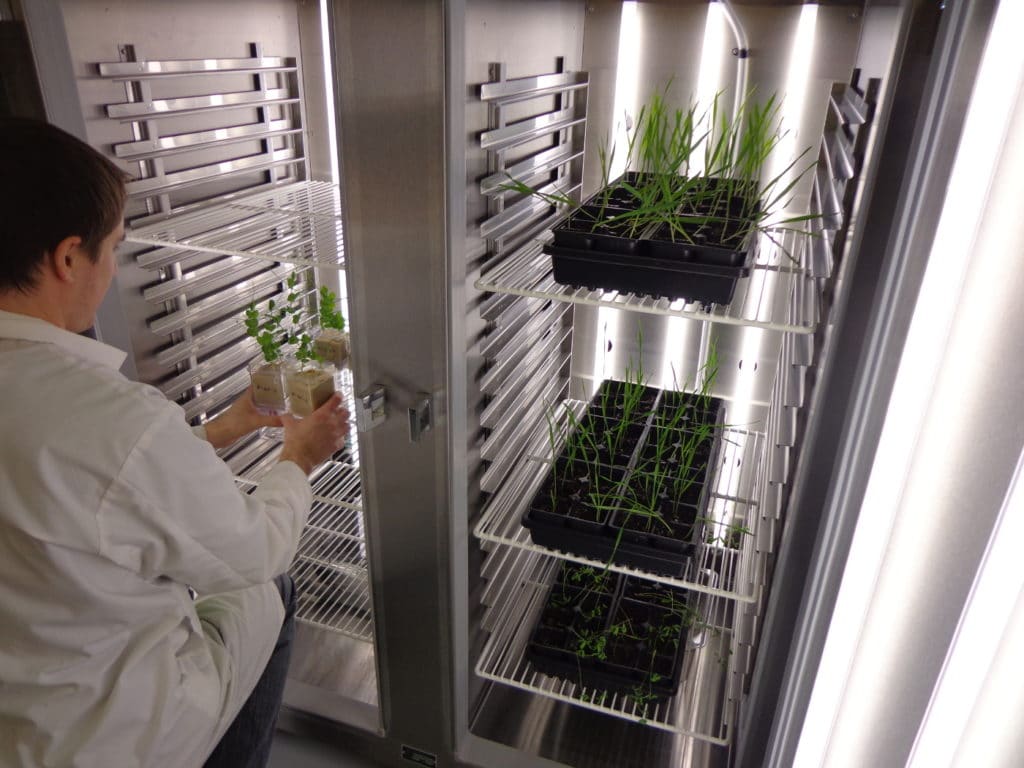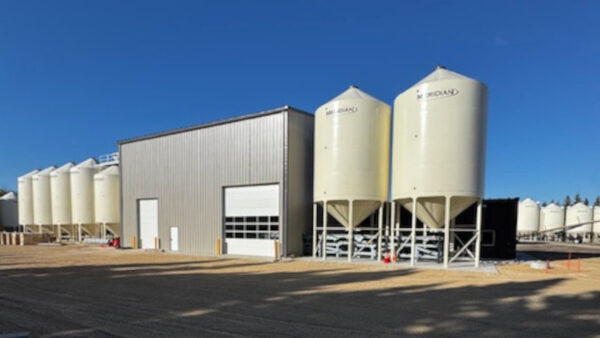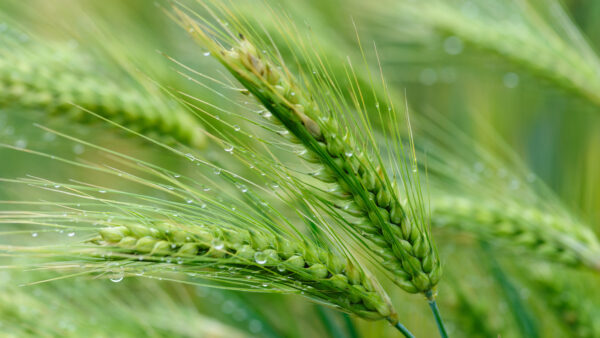As the need for organic pea protein goes up, so does the need for seed-applied technologies that can be approved for organic use.
Production of organic field crops is growing in Canada. France-based Roquette, for example, is keen to increase organic pea production this year to feed its Manitoba processing facility where plant-based protein ingredients are being produced. In 2020, for the first time, more acres of organic hemp were contracted in Western Canada by at least one Canadian company than conventional hemp in order to meet rising demands for organic hemp food products.
The 2019 Organic Agriculture in the Prairies report from the Canadian Organic Trade Association states that the Prairies are a key area in Canada for organic production, and growth in acreage was ‘significant’ from 2014 to 2018, with a slight decline between 2018 and 2019, mostly in organic wheat. Prairie organic crop acreage was 1.8 million in 2018 and many industry experts believe it will reach two million in 2021.
Organic seed treatments, which in Canada must be allowed under the Canadian Organic Standard and Permitted Substances List, are therefore in demand. Jessica Shade, director of science programs for the U.S.-based Organic Center (which conducts research on organic food and farming) notes that they can be as simple as hot water treatments to eradicate seedborne diseases.
Organic seed treatments also include combined priming (having the seed absorb just enough water to be ready to germinate) with pelleting (a coating of clay mix to make the seeds more uniform for more even dispersal). There are also organic biological seed treatments such as bacteria inoculants for improved nitrogen fixation or mycorrhizal fungi for enhanced nutrient uptake.
The Organic Seed Resource Guide, created by the Organic Agriculture Community of the eXtension Foundation of the U.S. Cooperative Extension System, states that the evaluation of plant extracts and oils as organic seed treatments is a new research area. There is currently little data on their efficacy, but “plant oils such as thyme, cinnamon, clove, lemongrass, oregano, savory, and garlic show some potential to suppress damping-off, and thyme oil is in use in Europe as a seed treatment. Pure soybean or mineral oils have been shown to reduce storage molds of maize and soybean.”
Doug Currier, technical director at the Organic Materials Review Institute (OMRI) in the United States, says that these days his organization is seeing applications for “microbial inoculants, and mined minerals (both as natural carriers for inoculants and as lubricants), as well as sanitizers such as peracetic acid, which as a pesticide, is classified as a production aid in the permitted substances list, but these types of seed treatments have been around for some time.”
Microbial inoculants previously approved for conventional use in Canada can be re-approved for organic use, a trend that popped up again in the market last year when XiteBio’s liquid innoculants XiteBio SoyRhizo (Bradyrhizobium japonicum) and XiteBio PulseRhizo for pea, lentil and faba bean (Rhizobium
leguminosarum) were approved for organic use.
In 2016, Health Canada’s Pest Management Regulatory Agency also approved Regalia Rx biofungicide from Marrone Bio Innovations for use on wheat and soybean. The Regalia product portfolio is a suite of biofungicides for use on both conventional and organic crops and is based on based on an extract of Giant Knotweed (Reynoutria sachalinensis).
Gaining Certification
XiteBio had already registered these technologies as conventional seed treatments in 2013, explains president and CEO Manas Banerjee.
“We started with soybeans and then developed a product for pulses and other crops,” he says.
“Over the last few years, we started hearing from more and more farmers with increasing organic acreage, asking if they could use our products on their organic crops as well. We looked up the standards and everything in our products looked to be compliant. This was not surprising because we believe in nature enhancing nature. The process of organic certification took only a few months last year.”
Development of this type of seed treatment is first a matter of narrowing down to ideal strains of bacterial species. XiteBio did its own trials and also used results from several U.S. university trials.
At XiteBio, the pool of strains extracted from soil samples was over 50,000 at first.
“Isolation and testing is the first step, then you must look at how to propagate the chosen strains consistently,” explains Banerjee. “Propagation then must be scaled up as you develop your formulation, one that works in different geographic locations.”
The company’s soybean inoculant is similar in on-seed efficacy period to chemical seed treatments, up to 90 days.
When asked about growth in acreage of the various organic crops in Canada at this point in time, Banerjee notes that there is some organic soybean production occurring, but that organic pea acreage is increasing significantly due in part to the construction of pea processing plants in Manitoba.
“It’s a very big potential market,” Banerjee says. “Roquette wants organic peas and Merit Functional Foods wants peas and also canola. But as the plant-based protein demand increases, and the demand for organic food products increases, expect that organic acreage of any pulses, as well as that of canola, wheat, barley, corn and potatoes will grow as well.”
Last fall, Roquette announced that Canada’s organic pulse growers will now have the option of contracting organic yellow peas with the plant-based ingredient manufacturer.
The ability of pulse growers in Manitoba and Saskatchewan to meet Roquette’s required capacity for yellow peas was an important factor in the group’s decision to locate its new, 200,000 square-foot pea protein plant in Portage la Prairie, Man.
—with files from Marc Zienkiewicz










